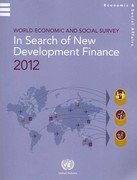Question
Mini-Case Vertical Integration at Zara The high-fashion garment industry is noted for outsourcing and relying on a supply chain consisting of many firms. Major clothing
Mini-Case Vertical Integration at Zara The high-fashion garment industry is noted for outsourcing and relying on a supply chain consisting of many firms. Major clothing brands typically outsource sewing and various other specialized manufacturing functions to subcontractors in a variety of low-wage countries, particularly in Asia. Bucking this trend is the Spanish firm Zara, one of the world's largest and most successful clothing retailers. Zara manufactures its high fashion items in Spain and Portugal in a dozen company-owned factories. Thus, Zara relies on vertical integration more than most clothing retailers. Because it produces locally under the direction of company managers, Zara can quickly and easily change designs. It can design a new product and deliver the finished goods to its European stores in four to five weeks, much faster than its competitors who rely on production by contractors in Indonesia or Bangladesh. Zara exploits this speed advantage by quickly terminating designs that do not sell well, often canceling a design within a one week of when it hits the shelves if it does not move quickly.
2) Based on the Mini-Case "Vertical Integration at Zara," would you expect vertical integration to be as profitable for clothing retailers who specialize in work clothes and uniforms as it is for Zara?
Step by Step Solution
There are 3 Steps involved in it
Step: 1

Get Instant Access to Expert-Tailored Solutions
See step-by-step solutions with expert insights and AI powered tools for academic success
Step: 2

Step: 3

Ace Your Homework with AI
Get the answers you need in no time with our AI-driven, step-by-step assistance
Get Started


